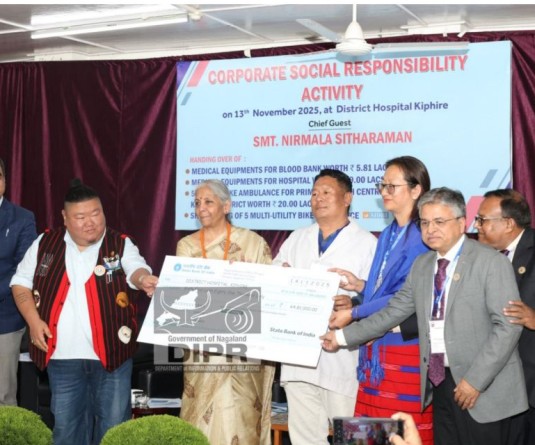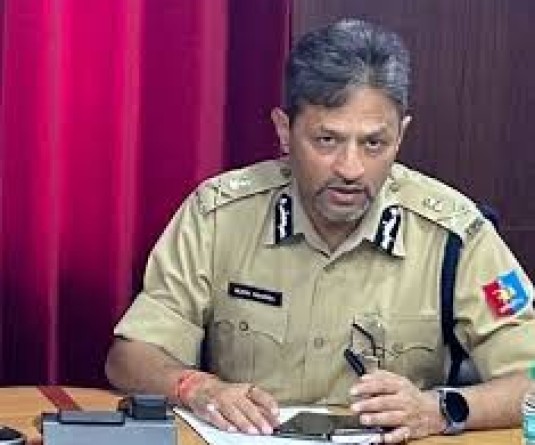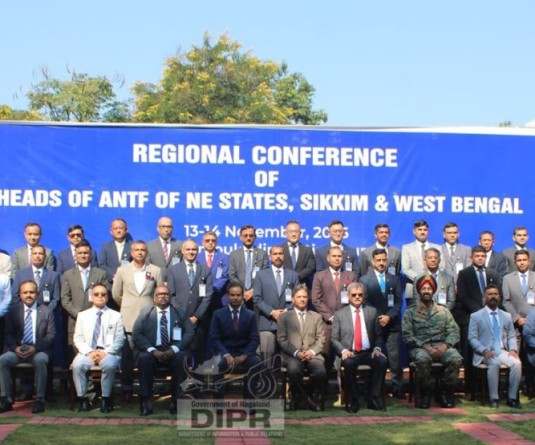
Morung Express News
Dimapur | February 27
Two of A’s three children are in college. Her main source of income to sustain the family is her late husband’s pension and some hajira (daily wage work) she manages to do sometimes. She has not seen her local political representative in the past 5 years, till the elections were announced in 2018 but she showed up to vote in her Ghaspani-1 A/C in Dimapur district on February 27 anyway.
“Upay nai—what to do—I was given 1000 rupees by one of the candidates so I have to come vote for him,” she says when asked why she is in line to vote today. “I wish they would help at least when we are in trouble. But it is enough that God’s grace (Iswor laka morom) is upon us. That is all I need,” the citizen concurs.
Like her, several women are acutely aware of the difficulties surrounding them. Some are either oblivious of, or have reconciled with, what a Member of Legislative Assembly owes to them but does not deliver, while some are using the ballot to overthrow poor leadership. Yet others are helping leaders come to power so they can help them out in turn.
In Dimapur-III A/C, a group of women have already waited 5 hours in the queue. Despite turning up at 7:00 am, they have not had the chance to cast a vote. “The roads here are so bad, my children are always facing trouble going to school. Besides, everything here is expensive and increasingly becoming difficult for us to afford,” says one of them, of Mech Kachari origin. “I want to vote to ensure my two children at least have a good future!” Has she had a chance to meet the candidates to decide who to vote for to set things straight? “No, the village has decided on a candidate so I will have to vote for that one.”
While the poor have little choice in such collective democracies, richer women enjoy a bit more space in Nagaland.
“I will vote based on candidate, not party lines,” says P at the same polling station as the above woman. It could not be ascertained if the village ‘consensus candidate’ and her choice were the same person (due respect for secret ballot). “The person I will choose has worked extensively for the public and can do more given enough chance,” she notes, while pointing out how the particular polling station, a government school, had to build slopes on its porch to make the station disabled-friendly eventhough the government provided no funds.
In the same village, there is an all-women’s polling station where the Electronic Voting Machine has broken down more than once but the women polling officers, including a woman security personnel, encourage each other and move through the day despite the delay—the officers have cast their votes through paper ballot last week. At a neighbouring Garo village, women pledge to vote on the lines of the ‘Clean Election Campaign.’
Not far, in Dimapur-III A/C, a woman of Dimasa origin sustains her family through kheti (farming). Her friend from the same community, who has just come out after casting her vote, says she sustains her family, with two kids, on hajira. “I wish the government would help when we fall sick,” hopes the first, especially after she had a heart surgery. “I wish the government would give me a ring well and resolve our water issues,” the friend hopes.
But neither of them have met any of the candidates—“we are just pressing whatever button!” they say before attracting stiff stares from their village neighbors. It is possible that this village also has a consensus candidate and doesn’t want the women to say anymore.
In Dimapur-II’s Landmark Colony, we meet a woman who is happy to speak with a name. “I am Akhe Wotsa, Proprietor of Ed.com Institute in Midland,” she pronounces while showing her voter slip. “Our leaders are spending so much on festivals and building houses that resemble resorts but we have to ply on hanging bridges! I will give my vote to a candidate who is capable of handling this Naga situation,” she says, even as several women in the line join her with nods and reiterations.
“Look at our roads; public funds are being misused from the level of ministers to contractors to Gaon Buras. If we vote for the right candidate, then no matter which party comes to power, we will have a capable leader to govern us,” the voter concludes.
As women like Wotsa will use the electoral process to usher change in Nagaland, other women, in the same colony, are busy collecting voter slips of those who are unable to vote on February 27. “We will benefit if our candidate comes to power na,” says N as she polishes off some indelible ink from a young educated unemployed man’s finger. Reeking of alcohol, he also aspires for change in the form of a job if his “uncle’s friend” comes to power.






